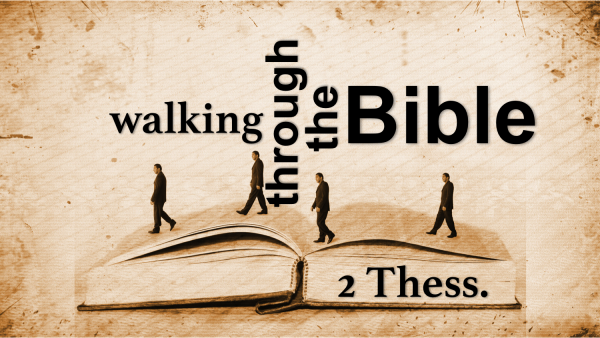The exact source of this error into which the church had fallen is unknown; however, Paul does give some insight into why this misunderstanding has taken place. In II Thessalonians 2:1-2, he encouraged the brethren to not be deceived by every wind of false doctrine and identified the means by which they had come to their unsettling conclusions. “Now we beseech you, brethren, by the coming of our Lord Jesus Christ, and by our gathering together unto him, that ye be not soon shaken in mind, or be troubled, neither by spirit, nor by word, nor by letter as from us, as that the day of Christ is at hand.” As Dunn noted, “This suggests that they were misled by false teachers who claimed to be divinely inspired, who quoted traditional sayings to support their view, and who misrepresented Paul’s first letter concerning the Lord’s coming.” Thus their anxiety over the second coming of Christ had not be cured but had, in some ways, actually been deepened. The false teachers would attempt to deceive, but if they would live faithful lives and worry not about the morrow, then peace and comfort could be theirs’.
As with others of Paul’s letters, II Thessalonians is arranged in sermonic form, each chapter providing distinct instruction and encouragement in view of the end day and the comfort they could have amidst the unsettling lies with which they were confronted. First, in chapter one, Paul enlightened his brethren regarding the events of that day and their involvement in it. They, as Christians, might have been suffering in the present, but they could glory in their tribulations because they would be but for a while. At some point those who troubled them would receive the just recompense of their deeds. Therefore,
“…to you who are troubled rest with us, when the Lord Jesus shall be revealed from heaven with his mighty angels, in flaming fire taking vengeance on them that know not God, and that obey not the gospel of our Lord Jesus Christ: who shall be punished with everlasting destruction from the presence of the Lord, and from the glory of his power; when he shall come to be glorified in his saints, and to be admired in all them that believe (because our testimony among you was believed) in that day” (II Thessalonians 1:7-10).
There is a day coming in which the earth and all its elements will be melted with fervent heat (II Peter 3:10,12), but as terrifying as those events sound, glory will be found in the Lord. Thus by having the facts of that day laid out before them, the Thessalonians could more easily be instructed out of their fears.
Second, in chapter two, Paul eased the worries the Thessalonians had developed over what they believed would be an imminent return. Apparently in the midst of the deceivers’ ramblings, they had convinced the Thessalonians that Christ’s return was immediate, causing both excitement and trouble in the church. The apostle, though, could comfort their troubled minds and did by informing them that Christ’s return would in fact not be imminent and immediate, but rather would follow a certain event that would first occur.
“Let no man deceive you by any means: for that day shall not come, except there come a falling away first, and that man of sin be revealed, the son of perdition; who opposeth and exalteth himself above all that is called God, or that is worshipped; so that he as God sitteth in the temple of God, shewing himself that he is God” (II Thessalonians 2:3-4).
There is, from several sources, a falling away prophesied in the New Testament (I Timothy 4:1-3; II Timothy 3:1-8,13; Matthew 24:24; etc.). Thus does Paul once again refer to it as an event that would precede Christ’s coming. However, Paul likewise refers to the revealing of a man of sin and son of perdition that would precede it as well. And while Paul does not explicitly identify who this is, it is evident that they are affiliated with this falling away. Therefore the people could ease their minds from worry, knowing that Christ was not coming immediately.
Third, in chapter three, Paul encourages them on toward faithful service amidst the trouble they faced. He began by asking for their prayers that the gospel might have free course, a prayer we should continue to pray today. But then he goes on to recognize their struggles in dealing with disorderly brethren and tells them to withdraw from them and go on about their business of serving God. It is easy to become discouraged when surrounded by sin (especially when committed by fellow Christians), thus Paul instructed them to “be not weary in well doing” (II Thessalonians 3:13). If they would ignore the busybodies and busy themselves in the service of God they would receive peace from the Lord of peace, and thus relieve their worries about the judgment.
The judgment is a day about which sinners should worry and a day to which Christians can looked with anticipation. Perhaps you struggle with similar anxieties as did the Thessalonians. Obey God, and in the words of Paul, “rest with us.”

